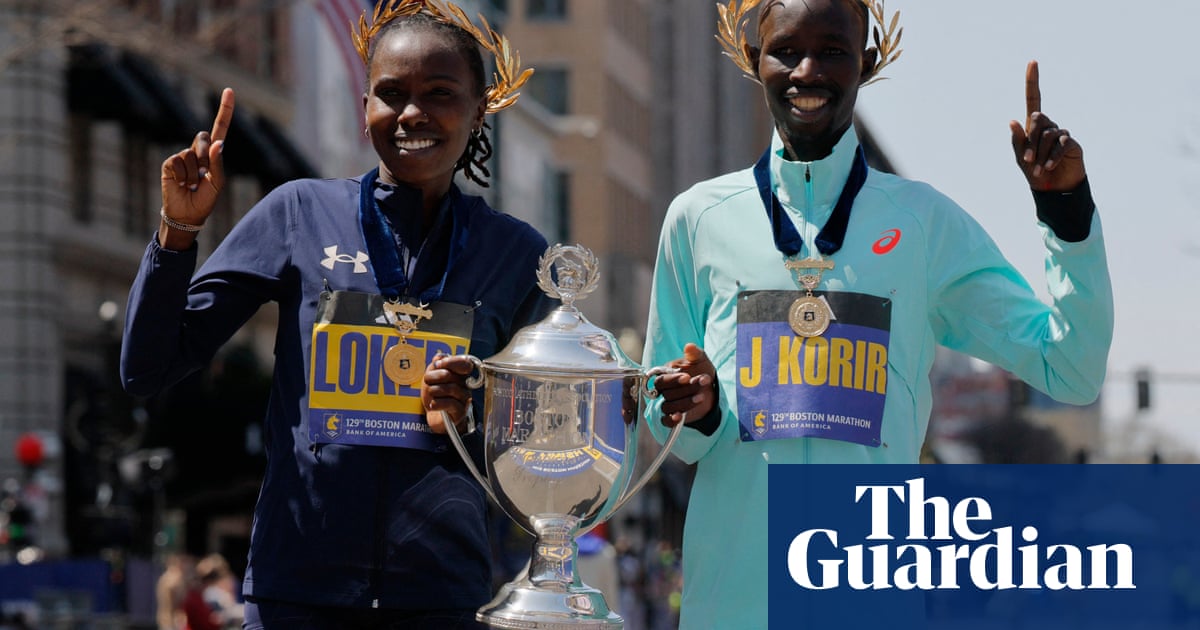Sharon Lokedi broke theBoston Marathoncourse record, and fellow Kenyan John Korir joined his brother as a race champion on Monday.
Lokedi outran two-time defending champion Hellen Obiri over the final milea year after losing a sprint down Boylston Streetto the same athlete in one of the closest finishes in race history. Lokedi finished in an unofficial 2hr 17min 22sec – 19 seconds ahead of Obiri and more than two minutes faster than the previous Boston best.
In the men’s race, six months after winning Chicago, Korir finished in 2:04:45 – the second-fastest winning time in race history as the runners took advantage of perfect marathon weather to conquer the 26.2 miles from Hopkinton to Copley Square.
After crossing the line, Korir was greeted by his older brother, 2012Bostonwinner Wesley Korir. Although the race has been won by a pair of unrelated John Kelleys and two different Robert Cheruiyots, the Korirs are the first brothers – or relatives of any kind – to win the world’s oldest annual marathon. Korir ran without his bib showing, pulling it out of his running tights as he sprinted down Boylston Street.
AmericanConner Mantzfinished fourth after losing a three-way sprint with Alphonce Felix Simbu of Tanzania and Cybrian Kotut of Kenya. Simbu was second and Kotut was third.
The race celebrated the 250th anniversary of the start of the Revolutionary War. Reenactors on horseback, accompanied by a fife and drum playing Yankee Doodle, helped start the festivities and add a bit of levity when the horse carrying an actor portraying Paul Revere was spooked near the finish line. The actor had to hop off and walk the last few steps himself as the crowd laughed and clapped.
Marcel Hug of Switzerland had no such trouble completing the course, surging into Copley Square in 1:21:34 for his eighth Boston wheelchair title. He beat two-time winner Daniel Romanchuk by more than four minutes in the 50th anniversary of Bob Hall’s pioneering push to add a wheelchair division to the race.
“It means a lot to win this year, 50 years of wheelchairs in Boston,” Hug said. “For me, it will take some time to realize what it means, eight times wins. It’s such an incredible number.”
Susannah Scaroni of the United States won the women’s wheelchair race for the second time, finishing in 1:35:20. Her victory guaranteed that the Star-Spangled Banner would play on Patriots’ Day, the state holiday that commemorates the first shots of the Revolutionary War.
